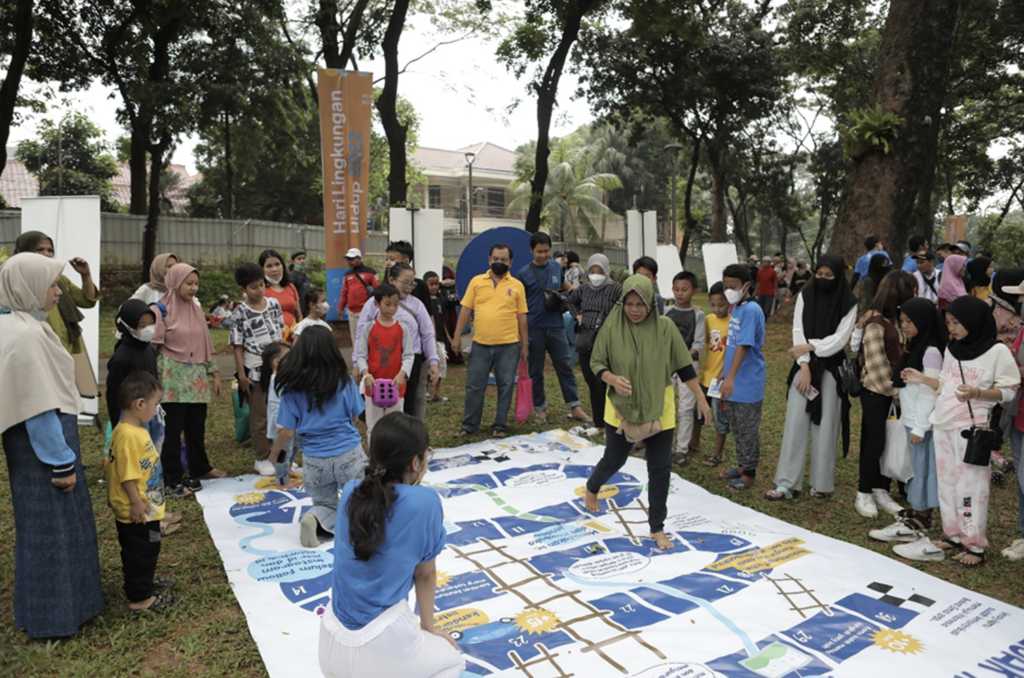Rapid urbanization and the high volume of vehicles on the road have contributed to Jakarta’s compromised air quality, but the provincial government has taken a big step forward by developing air pollution control strategies as part of Jakarta’s Clean Air Partnership.
Indonesia already has the highest number of premature deaths associated with air pollution in Southeast Asia. And in the capital city of Jakarta, the levels of fine particulate matter (PM2.5), the pollutant most hazardous to health, are routinely four to five times higher than the World Health Organization’s recommended air quality levels. Among all Indonesian provinces, Jakarta accounts for the largest percentage of deaths related to air quality.
To address this escalating public health threat, Vital Strategies partnered with the Special Capital Region (DKI) Jakarta Provincial Government to launch the Jakarta Clean Air Partnership. The initiative, now two years old, aims to improve the availability and use of air quality data, analyzing policy solutions and their effectiveness, and promoting public awareness on the health impacts of air pollution.
A critical focus of the partnership has been developing the “Grand Design for Air Pollution Control.” This serves as the roadmap to improve Jakarta’s air quality through three main strategies: 1) improving air pollution control governance; 2) reducing air pollution emissions from mobile sources, and; 3) reducing air pollution emissions from stationary sources.
Vital Strategies, supported by Bloomberg Philanthropies, supports the partnership by gathering evidence and conducting studies to measure the health and economic impact of air pollution in the city. This year, the support continues through the analysis of policy options and their impacts, installation of new air monitors to better understand how air pollution varies across Jakarta and using these systems to evaluate progress.
“We are honored to be a part of the impressive progress DKI Jakarta is making to gather evidence, conduct studies, and to be transparent about the problem and the needed solutions,” said Daniel Kass, Vital Strategies’ Senior Vice President for Environmental, Climate and Urban Health, speaking to a crowd of 20,000 at a World Environment Day Festival in Jakarta’s Tebet Eco Park earlier this year to celebrate clean air initiatives. “Today’s event is one effort to raise awareness on the importance of clean air in our daily lives and the importance of collaboration at every level—government, private sector, NGOs and the public—to improve air quality in the great city of Jakarta.” The partnership has engaged local and international stakeholders from academia, nongovernmental organizations, think tanks and civil society to advance the clean air agenda in Jakarta, and features a Low Emission Jakarta website.
Among solutions critical to improving air quality are expanding public transit systems and modernizing emissions requirements for vehicles, which is the predominant source of air pollution in Jakarta. While the relevant agencies focus on public transport infrastructure, a critical step will be gaining the support of people who are accustomed to using personal cars or motorcycles.
“This becomes everyone’s concern,” said Asep Kuswanto, Head of the Jakarta Environment Agency, at the Tebet Eco Park event. He urged the people of Jakarta to play their part by regularly getting emission tests for their vehicles and making the shift to using public transportation modes as much as possible.

Vital Strategies partners with governments around the world, providing data and technical expertise that inform air quality policies, and empowers clinicians and the public to demand cleaner air. Learn more about our work in environmental health.
Get Our Latest Public Health News
Join our email list and be the first to know about our public health news, publications and interviews with experts.